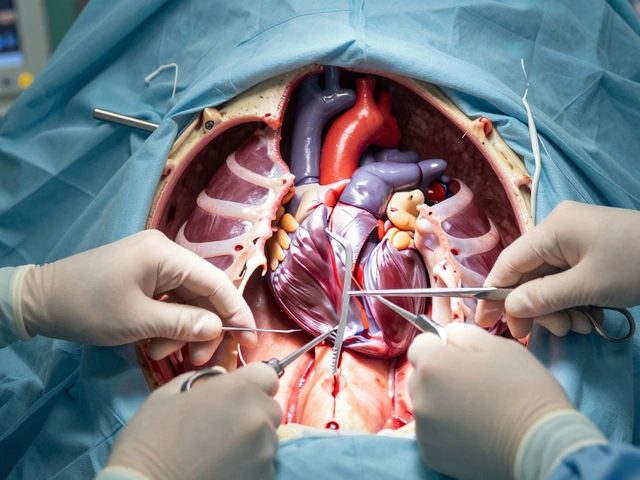Chemo Recovery Tips: Simple Steps to Feel Better Faster
Finishing a round of chemotherapy can leave you drained, nauseous, and uncertain about the next steps. The good news is that many of the side effects are manageable with the right habits. Below are practical actions you can start today to speed up recovery, keep your mood steady, and protect your body while it heals.
Take Care of Your Body Basics
Stay hydrated. Chemotherapy dehydrates you quickly, especially if you’re dealing with vomiting or diarrhea. Aim for at least eight glasses of water a day, and add herbal teas or coconut water if plain water feels boring.
Fuel with small, frequent meals. Large meals can trigger nausea. Instead, eat five to six light meals spread throughout the day. Include protein (like eggs, dal, or tofu), complex carbs (whole grains, sweet potatoes), and a splash of healthy fat (ghee or olive oil) to keep blood sugar stable.
Rest without over‑sleeping. Your body needs sleep, but too much can make fatigue worse. Try a pattern of 7‑8 hours at night plus short 20‑minute naps if you feel a dip in energy.
Manage Common Side Effects
Nausea. Keep ginger snacks, peppermint tea, or a small bowl of plain soup handy. If nausea spikes, sit up, breathe deeply, and avoid strong smells.
Fatigue. Light exercise—like a 10‑minute walk or gentle stretching—boosts circulation and can actually reduce tiredness. Start slow and listen to your body.
Hair loss. Choose a soft, breathable scarf or a loose wig if you’re comfortable. Protect your scalp from sun with a hat or sunscreen.
Immune support. Wash hands frequently, avoid crowded places when your white‑blood‑cell count is low, and talk to your doctor about growth‑factor shots if needed.
Mind Your Mental Health
Chemo can feel isolating. Talk to a friend, join a support group, or simply journal your thoughts. Mind‑body practices such as meditation, deep‑breathing, or listening to calming music can lower stress hormones that otherwise slow healing.
If you notice persistent low mood, consider reaching out to a therapist or counselor. Early help prevents a dip from turning into a deeper mental health issue.
When to Reach Out to Your Doctor
Any fever over 100.4°F (38°C), persistent vomiting, severe diarrhea, or sudden shortness of breath should prompt an immediate call to your oncology team. Likewise, report any unusual bruising or bleeding, as they may signal blood‑cell changes.
Regular blood tests are part of chemo monitoring. Keep a copy of your results, note any trends, and discuss them with your doctor during follow‑up visits.
Long‑Term Recovery Planning
After finishing chemo, your body still needs time to fully bounce back. Schedule a post‑treatment checkup, discuss any lingering side effects, and ask about survivorship resources such as nutrition counseling or physiotherapy.
Stay active, keep a balanced diet, and maintain the sleep hygiene you built during treatment. These habits form a solid foundation for staying healthy beyond cancer.
Remember, recovery is personal—what works for one person might need tweaks for another. Use these tips as a starting point, adapt as you learn what your body needs, and celebrate every small win along the way.

Hardest Days After Chemo: What to Expect and How to Cope
Chemo hits everyone differently, but there’s a pattern to the hardest days. This article breaks down when the toughest side effects usually hit after chemo, what people actually feel, and why. Get real, actionable advice on handling nausea, fatigue, and mood swings. Learn which days tend to be the roughest and what you can do to make it through. Each section is loaded with simple tips to help you or your loved one feel more in control after treatment.

Best Mail-Order Pharmacies: Who's Leading the Pack?
Mar, 19 2025

Wegovy Cost Without Insurance: What You Need to Know
Jan, 16 2025


